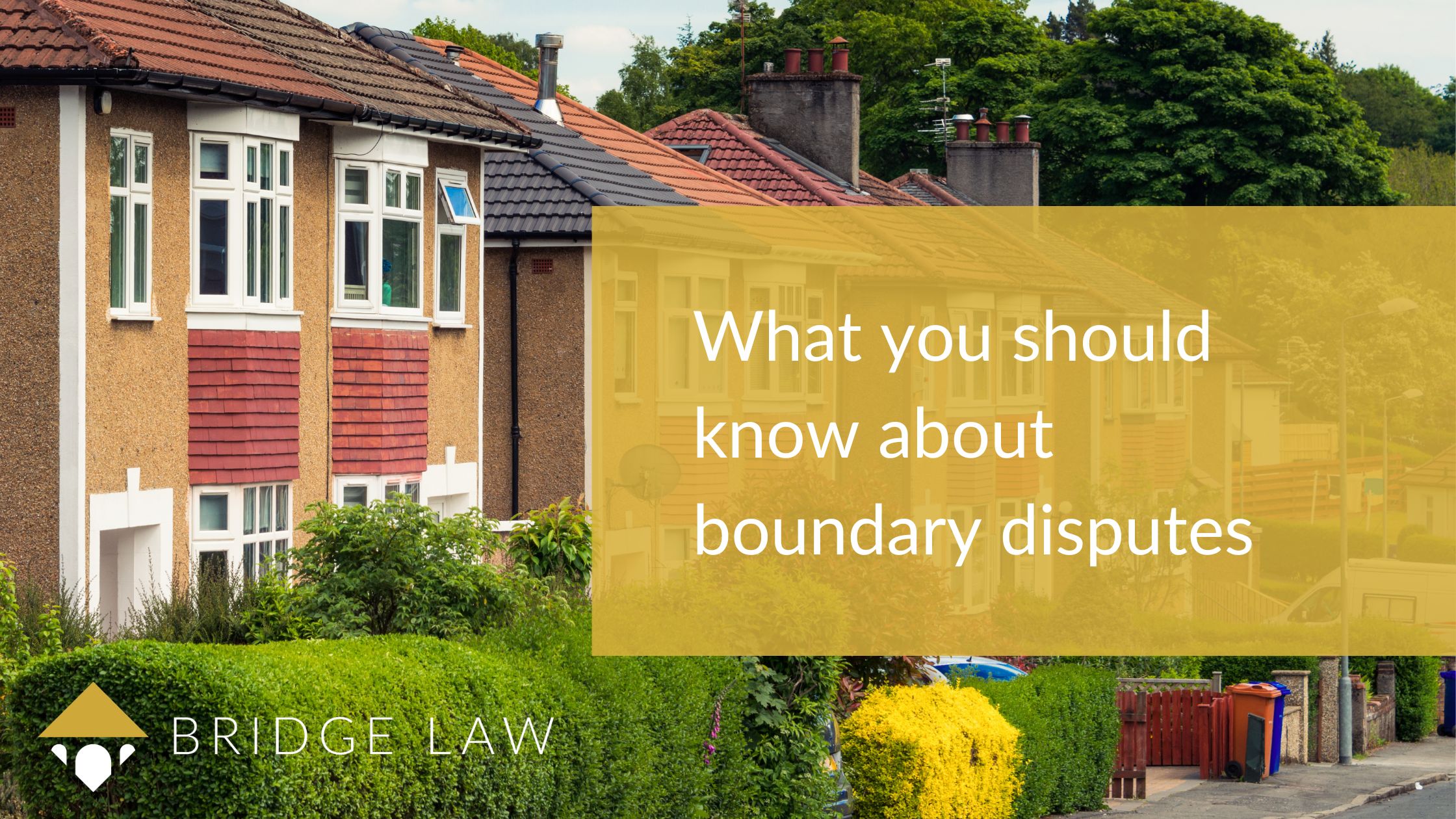What you should know about boundary disputes

Boundary disputes are one of the most common neighbour disputes that property owners and occupiers can come across. If there is a disagreement when determining a boundary between two or more properties, it can often escalate into a frustrating, costly and lengthy situation that can be difficult to resolve without the correct information or procedures.
We recently introduced you to boundary disputes in our most recent neighbour disputes article. In this article, we will dive deeper into what a boundary dispute is and explain some of the things you should be aware of – so you can approach and hopefully resolve matters easier if you were to ever be in a similar situation with a neighbour.
Firstly, what is a boundary dispute?
A boundary dispute is a disagreement between two or more properties over who has the possession, control and rights of a boundary between the properties. Some of the most common boundary dispute examples include:
- Fences
- Hedges
- Trees
- Walls
How to determine a boundary
More often than not, the reason why boundary disputes are so common is because the boundary lines between properties are unclear, which raises questions and disagreements between the involved parties.
The aim is to find where the boundary lies, but how do you do this?
In the first instance, checking the land registry plans might feel like the best solution. However, this doesn’t always necessarily provide all of the boundary information that is required.
Instead, check the pre-registration deeds for the details of the transfer of land, which could provide important information and evidence to support your boundary dispute case.
If it’s available, the document which created the boundary and divided the land would also be useful.
If the boundary line is undetermined after following these few steps, it is worth you (or jointly with your neighbour) getting a chartered surveyor to look through the deeds and clear up where the true boundary between the properties lies.
How best to resolve a boundary dispute
Whilst no neighbour disputes are stress-free, you can help to minimise additional acrimony and upset by trying to remain as civil as possible and avoiding letting the dispute become personal. If all parties are civil, it prevents the disputes from spiralling further and becoming a more lengthy and sometimes more costly process than it should be.
It’s also vital for all involved parties to be as honest and transparent about the documents and information they know and find out about the boundaries.
There’s no doubt that a boundary dispute can be a big expense for property owners and in some instances, resolving the boundary dispute can cost more than the land is worth. To steer clear of racking up more costs than necessary during a boundary dispute, it’s always worth seeking specialist legal advice to resolve the issues as quickly and effectively as possible.
What to be aware of when buying or selling a property, to avoid boundary disputes in future
When buying a property, check the boundary features early on in the process to spot and question anything that looks uncommon or unexpected. It’s also worth asking the conveyancing solicitor what is included in the title deeds.
Where you have suspicions about past or present boundary disputes – either by looking at the property or what’s written in the Property Information Form – ask questions to the seller about this. Once you have things cleared up, it will relieve some of the built-up anxiety and stress that sometimes comes with buying a new property.
On the other side of the deal, when selling a property, you will be required to fill out a Property Information Form, which has a question about historic or ongoing boundary disputes. Whilst you’re not legally required to answer this, we would recommend being as transparent and open about this to avoid further questions asked by the buyer.
What costs are involved with a boundary dispute?
There’s no real answer to how much a boundary dispute will cost; it all depends on how far the case has gone, which is why seeking early advice is always recommended.
If the case makes it to a Land Tribunal or Court for a hearing then costs will inevitably be higher as such cases include:
- Court fees
- Solicitors fees
- Costs associated with getting additional documents and records
- Chartered surveyor fees
Speak to our specialist property litigation team on 01484 442 700 (Holmfirth office), 0161 427 0084 (Marple Bridge office) or email info@bridgelawsolicitors.co.uk.
Written by Jonathan Cass

Boundary Dispute, neighbour dispute, Property Dispute, Property Litigation
